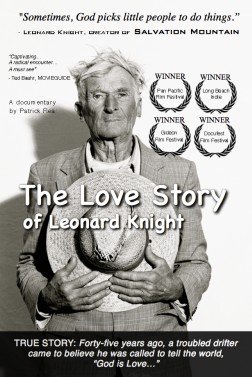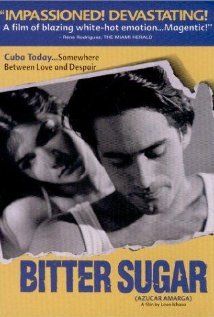
| None | Light | Moderate | Heavy | |
|---|---|---|---|---|
| Language | ||||
| Violence | ||||
| Sex | ||||
| Nudity |
Content:
(Ro, H, AC, LLL, VV, SS, NN, A, D, M) Romantic worldview with Anti-socialist and Anti-Communist elements; 17 vulgarities, 14 obscenities & 6 profanities; moderate violence including police brutality, police forcibly cutting off man’s hair, man dragged away to be put in an AIDS camp, attempted assassination, & man shot dead; several sexual situations including prostitution, implied fornication, & erotic kissing of a woman’s body; partial nudity of man & woman; depicted intravenous drug use & smoking; drunkenness; and, condom promotion for unmarried man & poverty from socialism
More Detail:
A love story with a strong political message against communism in Cuba, BITTER SUGAR is the story of Gustavo and Yolanda. Gustavo has been awarded a scholarship to Prague where he wants to study aeronautical engineering. Yolanda is a dancer, free-spirited and looking to Miami for a better life. He is loyal to Cuba despite its obvious decay and poverty. In pursuing his love for Yolanda, Gustavo finds their relationship strained by their differences in their outlook on life in Cuba. With his life spiraling downwards, Gustavo loses control when he sees Yolanda having dinner with her Italian friends. His angry confrontation in the hotel’s dining room results in his father losing his job. He loses his own scholarship, and Yolanda is put on a boat bound for Miami. At a public rally given by Castro, he meets his final destiny.
Filmed in black and white, BITTER SUGAR is beautifully crafted with powerful images of Cuba. There is a strong sense of political outrage, of broken lives and dreams. But, the film never quite manages to strengthen these themes, choosing instead to obsess itself with the good-looking Gustavo. The film’s violent ending is extreme and unnecessary, as are some of the erotic sequences between Gustavo and Yolanda. Otherwise, BITTER SUGAR is a well-made self-reflective piece on the ways that are going wrong in contemporary Cuba today.
Filmed in black and white, BITTER SUGAR is beautifully crafted with powerful images of Cuba. There is a strong sense of political outrage, of broken lives and dreams. But, the film never quite manages to strengthen these themes, choosing instead to obsess itself with the good-looking Gustavo. The film’s violent ending is extreme and unnecessary, as are some of the erotic sequences between Gustavo and Yolanda. Otherwise, BITTER SUGAR is a well-made self-reflective piece on the ways that are going wrong in contemporary Cuba today.



 - Content:
- Content: 

